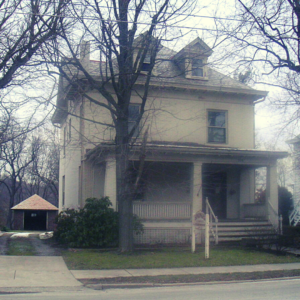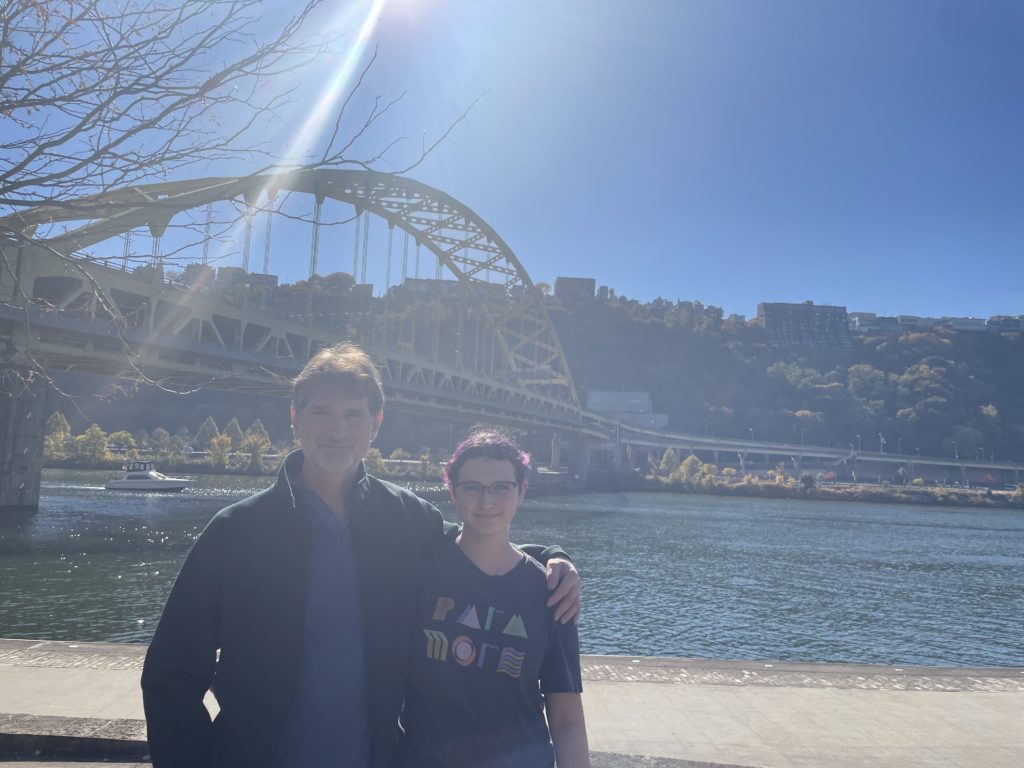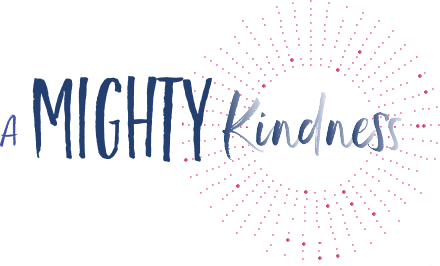 I grew up at 315 East Grandview Avenue in Zelienople, Pennsylvania, a small town about 30 miles North of Pittsburgh. I lived there with my mom, my sister, and my brother in a traditional American Foursquare house, built in 1900. It had four large rooms on the first floor, four bedrooms on the second, a finished attic and the regionally-famous “Pittsburgh toilet” that sat right in the middle of our unfinished basement. It was designed to welcome home a sooty steel mill worker before he cleaned himself and climbed upstairs for his dinner.
I grew up at 315 East Grandview Avenue in Zelienople, Pennsylvania, a small town about 30 miles North of Pittsburgh. I lived there with my mom, my sister, and my brother in a traditional American Foursquare house, built in 1900. It had four large rooms on the first floor, four bedrooms on the second, a finished attic and the regionally-famous “Pittsburgh toilet” that sat right in the middle of our unfinished basement. It was designed to welcome home a sooty steel mill worker before he cleaned himself and climbed upstairs for his dinner.
Behind our house ran the Connoquenessing Creek. Down the street was the public library, the community park with a pool and playground, and, of course, our local movie theater, The Strand. My brother worked at the local Burger King, my sister at the Dairy Queen right next door, and I, much younger than both of them, roamed the streets of our little town on foot or by bicycle, leaving the imprint of my young heart all over the town that I loved so very much.<
Eventually, my sister left home—and then my brother. And my mother, who had been raising children since she was 17, finally—in the words of the great Joni Mitchell—got the “urge for going.” After finishing her Masters Degree at age 40—after having her heart broken over and over again by men who never knew how to love her the way she needed—she was ready to leave this too-small town behind that was still the perfect size for me. Her dream was to move to Maine, where we had visited the year before, but first she wanted to travel for 6 months, spend some time visiting family before taking us to Europe for the adventure of a lifetime.
I found out all of this in a rush one day when I came home from 4th grade and learned my mom had gotten rid of our family dog because she was planning to sell our house so we could move. I became hysterical, shouting and crying at her, telling her I hated her—and to be clear, in that moment I truly and passionately did—until she had to call my older sister to calm me down. Max would be happy in the country with his new family. I would get to travel with mom to see her and my Aunt Nancy before going to England and “maybe you’ll get to meet Princess Diana and it will be so much fun. Such an adventure that no one else gets to have,” she said. I didn’t care, I just wanted to stay home, to stay in Zelienople, to get Max back, but her words were enough to calm me for the moment.
After that, my mom began to clean the house with a new-found zeal. It seemed like every weekend we’d have a yard sale or go to the flea market, where I watched strangers paw through our precious things. She painted the entire first floor—sans the kitchen—and our entire upstairs hallway a salmon pink color for some mysterious and never-to-be-understood reason. She scrubbed, tidied, painted, organized, and repaired until she finally put my beloved home on the market at the end of the school year. It sold that summer for $61,000 and with that money she hired her movers, made her plans, booked our tickets, and by October of that same year, we were pulling away from the only home I had ever known for the very last time.
From that point on, my mother became my home. That freedom to roam and explore—that comfort that came from the safety and familiarity that I had once felt in Zelienople—was gone and it gave way to a new sense of discomfort, a new feeling of being unsettled, a new sense of displacement and uncertainty as we went from Pennsylvania to Massachusetts to North Carolina to Iceland to Scotland to England to Wales to Portugal back to England and then onward to our new “home” in Maine. With each destination, each new experience, I could feel myself moving farther away from what I knew of my life and of myself, further away from the confidence that came with being back home.
And with each passing month, I grew closer to puberty—I grew taller and from my face began to emerge the woman I was going to become one day. But I also grew quieter. The once perpetual scowl that I had assumed when my mother first shared her grand scheme with me, it eventually softened but my outward confidence turned to inner fantasy and deep contemplation. Alone with my inner life, I would roam the paddock at the dairy farm where we were staying in Wales, as Snoopy the horse trailed behind me, poking his head into the chicken coop as I gathered eggs. My days consisted of only me—with my books, my Barbies, and my drawings. Yes, we met many wonderful people and made many new friends on our travels but my only constant comfort now was my mom and the home she created for us each time we moved during our time away.
When it was finally time for us to return back to the United States, I did so as a new person but probably not entirely in the way my mother had hoped for me. Sure, I had so many new experiences. Yes, I gained so much appreciation for new cultures and different people I otherwise would never have known. And of course, I developed new perspectives and an expanded sense of the world that few at that age get to enjoy. But looking back now I realize that with everything I gained, I also seemed to have lost my sure-footedness in the world—my sense of belonging to myself—in a very fundamental and meaningful way that instead filled me with an indescribable yearning that I couldn’t quite put a finger on. The loss of the comfort, safety, and familiarity of my home and possessions—when coupled with impending puberty—seemed to leave me almost dispossessed of self. I found myself at once both clinging to my mother for comfort while also pushing her away as I sought independence.
There is actually a word—or perhaps it’s more of a concept—in Portuguese called “saudade” that best encapsulates this state or feeling that I slipped into those years after our trip—one that I’m not quite sure I’ll ever be able to shake. Saudade is a kind of melancholic nostalgia that is infused in the culture and music of Portugal, Brazil, Cape Verde and beyond. It’s a kind of love-tinged and continual yearning for a place, a time, an era, that will never be returned to and that can never be recaptured. It’s fascinating to me that an entire culture recognizes this feeling and has embraced it so fully and naturally without the perpetual need to spiritually bypass it or deny it like we have here in the US. It’s also a feeling that I’m sure that many of us have felt at some point or another in the quiet darkness of the blackest midnight of our lives.
My particular experience may be my own, but we all have stories of leaving home. It is a rite of passage that has found its way into myriad myths and metaphors. And I also imagine many of us have stories of “home” leaving us—where home is that sense of belonging or safety I tried to describe earlier—be it with our bodies, or our careers, our relationships, or even just our physical places or spaces. At some point in our lives, I imagine all of us have experienced a sense of displacement or disconnection and an ache to return back to the way things were in time or space. Many of us have felt the melancholic nostalgia and deep yearning for the food, faces, feelings, and familiarity of a place, of a people, or even a purpose.
Our sense and understanding of home is at once innate—entirely understood and familiar—yet also frustratingly challenging to define and, far too often, to attain. What is home? Is it a place, is it an individual or a group of people, is it a feeling, or a sense of belonging to oneself? And why is it the subject of hundreds, if not thousands of songs, dozens of aphorisms, and countless books and poems, movies and plays? Why is it so central to our humanity? So pivotal to our lives physically, mentally, emotionally, spiritually?
Beyond its definition in a dictionary, the simplest answer—but perhaps not the easiest to explain—is that home is both a universal concept and a sacred symbol across all time and across all cultures. It is both ancient and innate. Home is a locus of ritual, of tradition, of community, of individual and collective safety, of ancestral lineage, of shared purpose and vision.
In many cultures—both ancient and modern—physical dwellings and communities are laid out and built according to cosmological movements or meaning. Altars and communal resources are centered in a community for earth-based rituals or celebrations according to these cosmological and spiritual principles.
In many ancient and pre-industrialized cultures, there is even a concept of spiritual homelessness that arises from when self is disconnected from family, ancestors, society, tribe, and cosmos through banishment, enslavement, or other forms of displacement that would mean spirits would wander as phantoms incapable of rescue after death.
In many religious texts and traditions, the concept of home is also a spiritual abstraction: our soul is separated from God and is yearning to return to his “kingdom” one day. Our Atman or individual incarnated soul is a part of Brahman, or the super soul, and is yearning for the experience of awakening and our ultimate return back to its source. Back to its home.
The concept of home is encoded in our physical, emotional, and spiritual DNA. We are infused in its purpose and meaning from conception through to our death and beyond. No wonder it is such a central concept to our lives. No wonder we feel so empty and unsettled when we are separated from whatever home has been for us. Not only are we moving through this life with souls that are seeking reunion with the Divine but we are souls who are seeking union with the people, places, and purposes that give our lives meaning and give our spiritual bodies roots. For us home is so much more than a concrete dwelling or the placement of huts or homes in a physical space: it is a concept and symbol that impacts every aspect of our lives, of our communities, and of our sense of our connection with our Gods, with the Universe, and with the stars above. And when we find ourselves dispossessed, displaced, or disconnected—without a sense of true belonging like I have felt for many years—we become like living phantoms, walking the Earth looking for rescue, always searching for home.
I’m not so naive as to believe that simply moving back to the place I first left at 10 years old and then again at 21 would solve this feeling of existential homelessness I’ve grappled with all these years. That’s why I’ve stayed here in Massachusetts for the past 24 years, even though I’ve never really felt fully at home here, never truly felt connected to this place or these people. But after years of being uprooted over and over again, living in a state of perpetual seeking, I have developed a kind of innate understanding that the feeling of home—particularly after the loss of my mother—could not be recaptured simply through a physical space. My grief was too deep and my loss too profound to buy into the fantasy of a romantic homecoming.
Instead, I have spent these past 24 years rooting myself in love in new and foreign ways—ways that right now have nothing to do with a physical place—ways that I’m still not sure I completely understand or am good at. I have been rooting myself in love with my partner and husband and closest family, Brendan, and our silly little cats and dogs, allowing myself to be fully seen and loved in spite of my history and my mess. I have been rooting myself in the love of close friendships and communities that I could never have sustained as a child or young adult because of how often I moved. And perhaps most importantly, over the past 7 years I have been rooting myself deep in the love of the Divine—of the Great Mystery—which has helped me to finally, finally come home to myself and to finally, finally, find comfort in and for the woman within me. I have come home to the cave of my heart that I abandoned years ago and found that I finally, finally belong here after so many years as a living phantom from so much loss. And the truth is I also still miss my home in Pittsburgh even as I find a renewed sense of belonging to—and rootedness in—myself.
 Recently, I went back there to share my beloved city and my alma mater with my niece, Bella, who is looking at colleges to attend next fall. During our adventures, my brother, niece, and I took a trip to Point State Park, which sits right at the confluence of the famous Three Rivers—The Monongahela, The Allegheny, and the Ohio.
Recently, I went back there to share my beloved city and my alma mater with my niece, Bella, who is looking at colleges to attend next fall. During our adventures, my brother, niece, and I took a trip to Point State Park, which sits right at the confluence of the famous Three Rivers—The Monongahela, The Allegheny, and the Ohio.
When we emerged from an underpass linking our parking lot with a walkway along the Monongahela River that would lead us to the park, I looked up with the sun in my eyes and suddenly saw the famous Fort Pitt Tunnel and Bridge looming above me. My grandfather’s tunnel. A tunnel for which he led the construction when it was built between 1957 and 1960. A tunnel that was built to move “man through mountain”—through the seemingly impossible dark—to help make a direct passage back home for its city’s residents.
As I looked up at this yellow bridge and the keystone-shaped opening to my grandfather’s tunnel, I saw my brother and niece walk past me, under the bridge, towards the tunnel as it loomed like God above us.Three generations of my family converging before me—with the flowing rivers of a place I had long-loved all around us. At that moment, I felt my shoulders ease as my face lifted to the sun. With my heart full to bursting, I felt a song of love and hope and joyful reunion begin to fill my lungs. I wanted to sing to this city, to the ghost of my Pa Joe and the indelible mark he left on this land and its people, to my brother and to his daughter who will carry his legacy forward, and to me who has finally found a sense of peace and belonging deep within myself no matter who I’m with or where I roam.
At that moment, I realized that home is not one thing. It is not just a place. It is not just people. It is not merely the purposeful passion that propels me forward in life. But rather it is the convergence of these three rivers—place, people, purpose—that joins up with a fourth river of song within me that will always sing me back to where I belong. Back to this place I can finally, finally call home.
This Sermon on the Couch was delivered live on December 4, 2022 as part of our free kindness community—The House of Belonging.

Leave A Comment